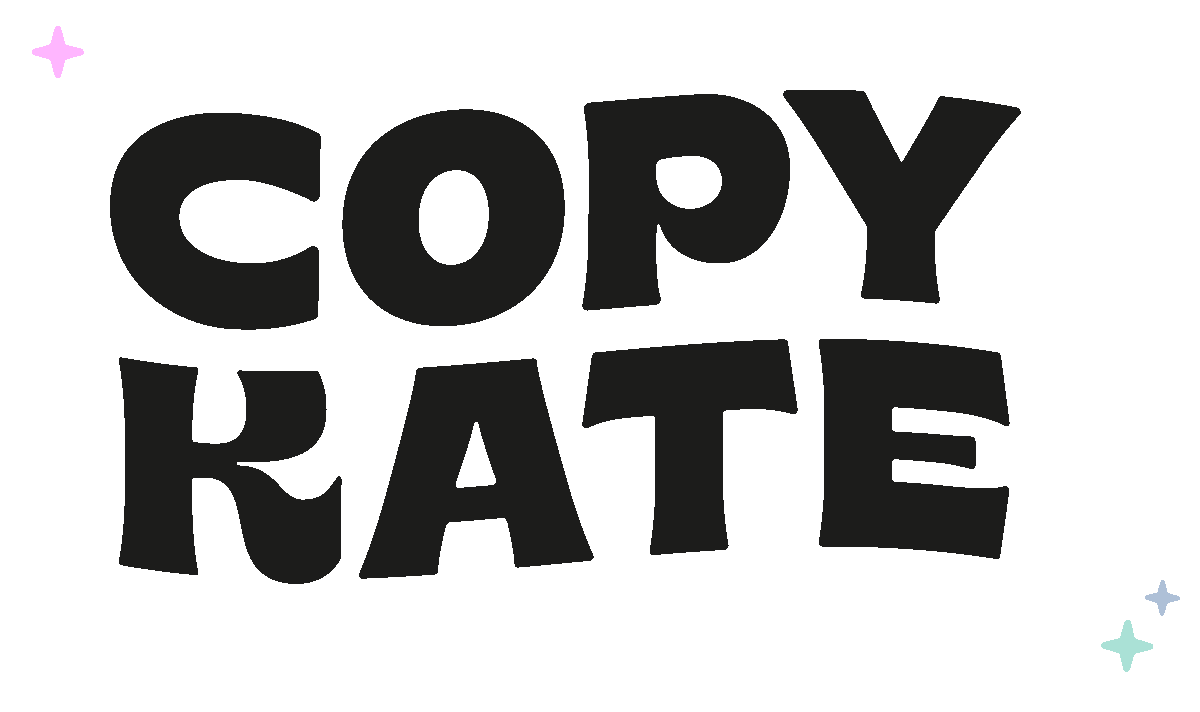The psychology behind words: How great copywriting taps into the human brain 🧠
If you've ever read a sentence that made you feel seen, clicked “Buy Now” without fully planning to, or stayed glued to a landing page longer than you'd like to admit… congrats, you’ve experienced the quiet power of psychologically informed copywriting.
And that’s no accident.
Words aren’t just all information; they’re emotion, behaviour, identity, and desire. Great copy doesn't just “sound nice.” It nudges, reassures, compels, and connects. It taps into how people think, feel, and make decisions.
As a copywriter who’s recently added a Diploma in Psychology to the mix, I’ve been diving deeper into how the brain actually responds to language, and what that means for the way we write copy. Spoiler: it’s fascinating, and it changes everything! 👀
Why Psychology and Copywriting Are a match made in wordy heaven 🤝
Let’s get one thing straight: copywriting isn’t about tricking people. It's about understanding them.
If marketing is about connection, then psychology is the blueprint. It gives us insight into how people make decisions, what motivates them, what they fear, how they process information, and what builds or breaks trust. When you understand that, you can write in a way that genuinely resonates.
Here are just a few psychological layers at play in effective copy:
How people make decisions (spoiler: it's mostly emotion, justified by logic after the fact)
How language shapes identity and self-perception
Why certain words feel more trustworthy than others
What makes someone feel seen, safe, or understood
How attention works and how fast we lose it
When you write with this awareness, your copy doesn’t just sound good. It gets results.
“Ethical Persuasion” vs Manipulation
Let’s be clear: using psychology in copywriting is not about mind games or manipulation, it’s about mindful communication.
Persuasion gets a bad rap sometimes, but at its core, ethical persuasion is about helping people make decisions that are right for them, not just right for your bottom line. It’s about understanding their motivations, concerns, and desires, and meeting them with honesty and respect.
Manipulation, on the other hand, relies on pressure, fear, or deception. It’s the difference between highlighting the true benefits of your offer versus exaggerating claims or playing on insecurities to force a quick sale.
True persuasion is a collaborative effort. It respects your audience’s ability to think critically and make their own decisions. Ethical copywriting doesn’t try to override someone’s better judgment, it supports it.
When you align your message with your values and your customer’s best interests, trust becomes your most powerful asset. That’s the kind of copy that builds not just conversions, but community. Loyalty. Advocacy.
How to Use Psychology in Your Copy Without Losing Your Humanity
Understanding psychological triggers is powerful, but it’s only effective when paired with genuine, human-centred writing. Here’s how to do it in a way that doesn’t feel icky:
✅ Speak to one person at a time
Don’t write for a crowd. Picture your ideal reader; what they care about, what they struggle with, what they want. Use the second person (“you”) to create intimacy and directness. Make them feel like this was written for them.
✅ Use emotionally intelligent language
Be mindful of tone. Meet your audience where they’re at. Avoid shame-based language or fear-mongering. Be motivating, not condescending.
✅ Tell micro-stories
Stories are how humans make sense of the world. A short, vivid anecdote can be more persuasive than paragraphs of explanation. Show your reader a scenario they recognise themselves in, then guide them to what’s possible.
✅ Use familiar words, not jargon
Familiar, accessible language lowers cognitive barriers. Avoid jargon and overly technical language unless absolutely necessary. Simple doesn’t mean simplistic, it means smart and considerate.
✅ Use rhythm and flow
Writing is meant to be felt, not just read. Vary your sentence lengths. Use pauses for emphasis. Read everything aloud. If it feels clunky, it is clunky. Smooth, natural rhythm keeps your reader with you.
✅ Prioritise Clarity Over Cleverness
Sure, it’s tempting to be witty, but not at the expense of meaning. Clear, straightforward copy builds trust. Cleverness can make people pause; clarity keeps them moving.
✅ Focus on Value, Not Just Persuasion
Every sentence should serve your reader, not just your business goal. Ask: "What’s in it for them?" Deliver value first, persuasion second.
A Quick Litmus Test: Is Your Copy Psych-Smart and Ethical? 👀
Before you hit publish, run your copy through this quick check:
Does it reflect how your audience actually speaks and feels?
Are you solving a real problem, or creating unnecessary anxiety?
Are you guiding, not pressuring?
Is the emotional tone supportive and respectful?
Are you being clear, not clever for clever’s sake?
If you can answer yes to most of these, chances are you’re hitting the sweet spot: persuasive and psychologically informed, without veering into manipulation or fluff.
The Takeaway
When you understand how people think, feel, and decide, you can write copy that doesn’t just fill space but creates impact. Copy that informs and influences. And, copy that connects and converts.
So next time you sit down to write, think beyond the words themselves. Think about the minds they’re landing in. Are you guiding with empathy? Are you clear about the value you offer? Are you writing something worth someone’s time and trust?
When you combine psychological insight with real, human-centred writing, that’s when the magic happens.
